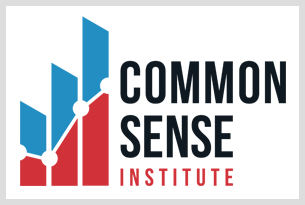Author: Cole Anderson
Denver Experiences Deflation
Prices in Colorado fell by 0.1% between November and January of 2024 after falling 0.34% between September and November. The decrease was spurred by declines in energy and transportation costs. After experiencing deflation for the first time in over a year from September to November of 2023, Denver’s MSA has now experienced consecutive bi-monthly periods of deflation.
Aided by this decrease, Colorado’s 12-month inflation rate fell from 4.5% to 3.5% in January, which remains above the national average of 3.1%. The last time Denver’s MSA experienced consecutive bi-monthly periods of deflation was in July–November of 2020.
The prices of energy (-6.66%) transportation (-3.67%), and medical care (-2.58%) decreased, while those of recreation (1.32%), food (1.23%), and utilities and household fuels (1.15%) rose. Of the 23 metropolitan area CPI series tracked by BLS, Denver’s total price growth since the end of 2020 ranks 9th.
- Between November and January, prices in Denver fell by .1%. This was the first consecutive bi-monthly period of deflation since July-November of 2020.
- From Jan ‘23 to Jan ‘24, Denver’s inflation rate was 3.5% while the average U.S. city’s was 3.1%.
- In December ‘23 and January ‘24, the average Colorado household spent $2,388 more due to inflation—an average of $1,194 per month. The average Colorado household has spent $26,530 more since 2020 because of higher inflation.[i]
- Metro Denver inflation over the past 12 months is the 9th highest among the 23 urban consumer price indices tracked by BLS.
In December and January, the average Colorado household spent $2,388 more due to inflation—an average of $1,194 per month. Since September, the Federal Reserve has held its key interest rate steady; if inflation continues to abate, the Reserve is unlikely to resume raising rates.
Inflation in metro Denver over the last 12 months was 3.5%—.4 of a percentage point above the national average (BLS CPI Survey)[ii]
- Of the 23 urban consumer price indices tracked by the BLS, Denver–Aurora–Lakewood’s ranks 9th in total growth since the end of 2020.
- Average annual inflation between 2010 and 2020 was 2.51%. Since January 2023, 5 of the categories shown on page 4 have grown by more than that and 8 have grown by less.
- The two price categories that grew the fastest over the last 12 months were fuel and utilities and services, which grew by 9.3% and 6%, respectively.
Price Changes in Metro Denver over the Previous Year
[i] Impacts on household spending are generated by distributing the consumer expenditure estimates from https://www.bls.gov/regions/mountain-plains/news-release/consumerexpenditures_denver.htm across individual months, weighting them according to their corresponding CPI levels, and adjusting them according to the latter’s growth history.
[ii] https://www.bls.gov/cpi/

